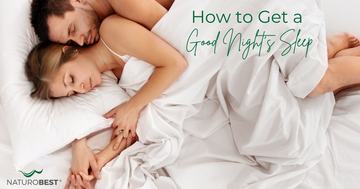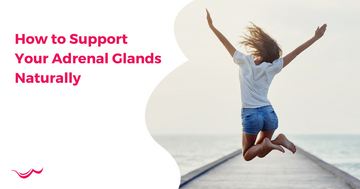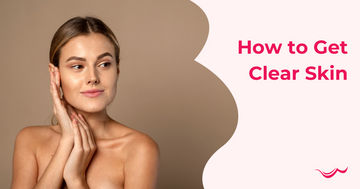
There are plenty of articles out there on how to reduce insomnia or get a good night’s sleep. However, a lot of the advice appears to be aimed at people who have the ability to fall asleep. They just prioritise socialising or working instead of getting 7-8 hours’ sleep at night.
There is nothing worse than lying in bed at night exhausted but unable to sleep. Some people refer to this as “tired but wired”. As someone who has experienced severe insomnia, I feel I have a lot of tips to share with you.
Once I couldn’t sleep for 7 days straight! Some of it will be the same old advice. Because changing bad lifestyle habits is the foundation to fixing your sleep problem. But hopefully, you’ll learn about some natural supplements and herbal medicine you’ve never tried before.
What insomnia is
Firstly, let’s take a look at how we define insomnia. It’s not having the occasional bad night. For example, having an argument with your partner before bed or listening to your partner snore all night.
Insomnia is when you experience weeks or months of either struggling to get to sleep. It may take hours every night or you may not sleep at all some nights on a regular basis. Or waking up too early and not being able to fall back to sleep. Or waking in the middle of the night and taking hours to go back to sleep.
It’s important to know what type of insomnia you have so you know how to treat it.
Sleep onset insomnia
This is when you struggle to get to sleep, and it’s usually caused by anxiety or stress. The other cause can be drinking caffeine during the day or consuming sugar before bed so rule that out first. You may have tried sleeping pills in the past but the problem is they can be addictive. You can wake up feeling worse than if you hadn’t slept at all.
When I went through a period of insomnia myself years ago, I played around with different herbal formulas until I found the perfect blend for me. My issue was getting to sleep (sleep onset insomnia) rather than staying asleep (sleep maintenance insomnia).
Sleep onset insomnia is often accompanied by anxiety. The perfect blend for me turned out to be the perfect blend for some of my clients who were suffering from the same issue. That magical blend was Withania, Chamomile and Passionflower.
I also used Lavender oil in an Aromastone at night and have discovered how powerful this oil is when taken in a capsule. I also took a combination of Valerian and Hops for a few weeks until I felt able to wean myself off them. The reason some people shouldn’t take hops long term is because it is oestrogenic. Perfect if you’re low in oestrogen, but if you’re not, limit hops to occasional or short-term use.
You may have tried valerian before and found it had the opposite effect and kept you awake. This can happen with a small percentage of people. But what I discovered in clinical practice was that if it is taken in combination with hops, it doesn’t have that effect and should help you drift off to sleep.
Sleep maintenance insomnia
Drinking caffeine during the day or alcohol can cause you to wake up after a few hours and not return to sleep easily. But if you haven’t consumed any caffeine or alcohol and you’re still waking up in the middle of the night on a regular basis, you may be stressed or have adrenal fatigue.
It’s best to work with your practitioner for sleep maintenance insomnia. However, I often prescribed Siberian ginseng during the day and if the patient woke before 2am, I advised to take my sleep onset formula (withania, chamomile and passionflower) at that time to help them fall back to sleep.
Sleep offset insomnia
This can be a sign of depression so have a chat to your doctor first before trying any natural supplements. Personally, I suffer from sleep offset insomnia in the week before my period. For this, I find melatonin brilliant for keeping me asleep until morning. Ask your doctor about a prescription for slow-release melatonin.
Treating the cause of insomnia
All of the above treatments are great for symptomatic relief. Long term you need to work with your practitioner and doctor on treating the cause of your insomnia. It’s common for people who suffer from insomnia to also suffer from anxiety or depression.
While your doctor can help you with medication for these conditions. Your naturopath or herbalist can help you from a nutritional perspective. They can also offer alternative herbal treatments if prescription medications don’t agree with you.
At a basic level, calcium and magnesium are relaxing minerals. They should be taken after dinner to help your nervous system calm down from the day. Zinc is also essential as it is required to make neurotransmitters including serotonin.
High copper levels can cause insomnia
Ask your practitioner for a serum copper test and while you’re at it test zinc as well. High copper levels are associated with anxiety, depression and insomnia and are often associated with high oestrogen levels. This may explain why women are more likely to suffer from anxiety and insomnia than men.
The best way of reducing copper is taking high doses of zinc under the guidance of your practitioner. If you have high oestrogen levels, you should treat this at the same time with herbs that are known to reduce oestrogen such as pomegranate, rosemary, grape seed and high doses of Chaste Tree daily. Eating cruciferous vegetables can also help oestrogen metabolism.
Natural anti-depressants
There are many herbs and supplements that are used as natural antidepressants. My favourite is Saffron. Aside from being a yummy herb to eat, Saffron has been clinically trialled as the patented Affron®. A double-blind randomised placebo-controlled trial found that taking 28mg taken daily for 4 weeks, significantly improved mood disorders such as tension, anger, depression, fatigue and confusion.
Another study showed that Affron® improved the quality of sleep through increasing deep sleep time and decreasing the amount of time taken to fall asleep. There is 10mg of Affron® in PMS Support & Antioxidant and 20mg in Stress & Sleep PM Formula which is why I recommend taking these formulas together if you are suffering from mood disorders or insomnia and you also have PMS or high oestrogen levels.
St John’s Wort is another common herb taken for mood disorders. In clinical practice I found that some patients didn’t respond well and in fact, it made them feel worse. If this is you, you may want to try a different brand or try it at a different stage of life. Our biochemistry changes and what worked in the past may not work for you now or vice versa.
5-htp is commonly used as a natural anti-depressant. In Australia, you will need your practitioner to give you a prescription for this and have it made at a compound pharmacist. It is important that it contains co-factor vitamins and minerals for it to work.
Methylation
When I went through my period of severe insomnia years ago, I had no idea that the protein shake with added vitamins and minerals was potentially the cause of my issue. This was in the years before methylation became a hot topic and I wasn’t aware of the effect of high doses of methylated folate and B12. The protein powder was purchased from the U.S. where supplements are not regulated and this powder had a whopping 5000mcg of folate and 5000mcg of methylcobalamin (active vitamin B12)!
Not surprisingly, I suffered the effects of overmethylation and spent seven nights in a row lying awake. I was beside myself by the time I got to the seventh day and after a visit to my GP, I was prescribed medication and finally slept.
It took a year to recover and wean myself off medication and I resolved to educate as many people as I could about this. It’s the reason the NaturoBest multivitamins contain hydroxocobalamin for the vitamin B12. This is the natural form of B12 which converts to the active forms in the body, as needed. The active folate is not in high enough doses to cause over-methylation.
Conclusion
After years of trial and error with both myself and my patients, I learned a lot about insomnia, and I can happily say that I no longer suffer from the debilitating condition. I hope you learned some golden nuggets in this article and if you have a success story, please share it with me! I’d love to hear from you.




